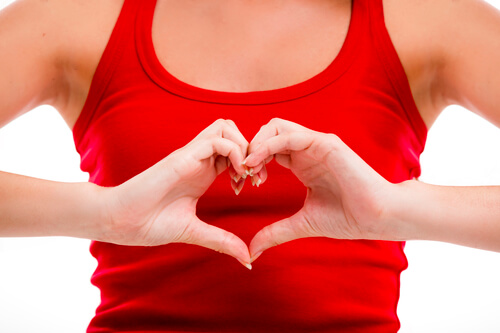
Have a heart
Earlier this year, Bill Connor made a 1,400-mile bike trip from Wisconsin to Florida for a very special purpose: he wanted to listen to his daughter Abbey’s heartbeat. The 20-year old had tragically drowned while on vacation, and her organs were subsequently donated. Bill made the bike pilgrimage to meet up with Loumonth Jack, Jr., a young man whose life was saved by this donation. In an emotional meeting that went viral, Bill listened to his daughter’s heart beating in the recipient’s chest through a stethoscope. He not only wanted the connection with his daughter, he also wanted to raise awareness about the importance of organ donation in saving lives.
We think this is the perfect anecdote to illustrate three events that occur in February. First, there’s Valentine’s Day, followed quickly by Random Acts of Kindness Day. These two events encourage us to show love and kindness not just to our sweetheart and our immediate friends and family, but also to extend that love to the wider human family by performing unexpected gestures of kindness to strangers. The third observance ties right in: February is also American Heart Health Month.
One of the most important gifts you can give to a loved one on Valentine’s Day is to look after your own heart health and to encourage them to look after theirs. Heart disease is the leading cause of death for men and women in the United States. Every year, 1 in 4 deaths are caused by heart disease.
Here are things you can do to commemorate all three events, not just in February, but throughout the year:
Learn steps to lower the risk of heart disease. Act on them and share them with loved ones. The American Heart Association recommends Life’s Simple 7: Manage blood pressure; control cholesterol; reduce blood sugar; get active; eat better; lose weight; stop smoking. They suggest starting with one or two and note that even modest improvements can make a big difference

Know your blood pressure. Check it regularly at home, at the doctor’s office or at the pharmacy. If it’s high, make it a priority to take steps to control it.
Familiarize yourself with heart attack and stroke symptoms. Learn what to do if you or someone around you appears to be having a heart attack or a stroke. Take a CPR and First Aid training course. When properly and promptly performed, CPR can greatly improve a person’s chance of survival should they experience cardiac arrest. Anyone can learn CPR.
Spread the word. Help raise awareness about heart health by posting on social media. Participate in National Wear Red Day to raise awareness about women and heart disease. Support heart research through donations or being active in heart-related fundraisers such as runs, walkathons and bikeathons. Get information and ideas for how to be involved at the American Heart Association.
Register as an organ donor. Every day, 20 people die due to a shortage of available organ donors. A single organ donor has the potential to save up to 8 lives!
Your EAP can help. Learn more about heart health, heart disease and hundreds of other health-related topics by logging in to your EAP’s self-help wellness resources. You and your family will find hundreds of useful articles and videos on various health topics.
1.800.252.4555 or 1.800.225.2527
View more newsletters at www.theEAP.com
